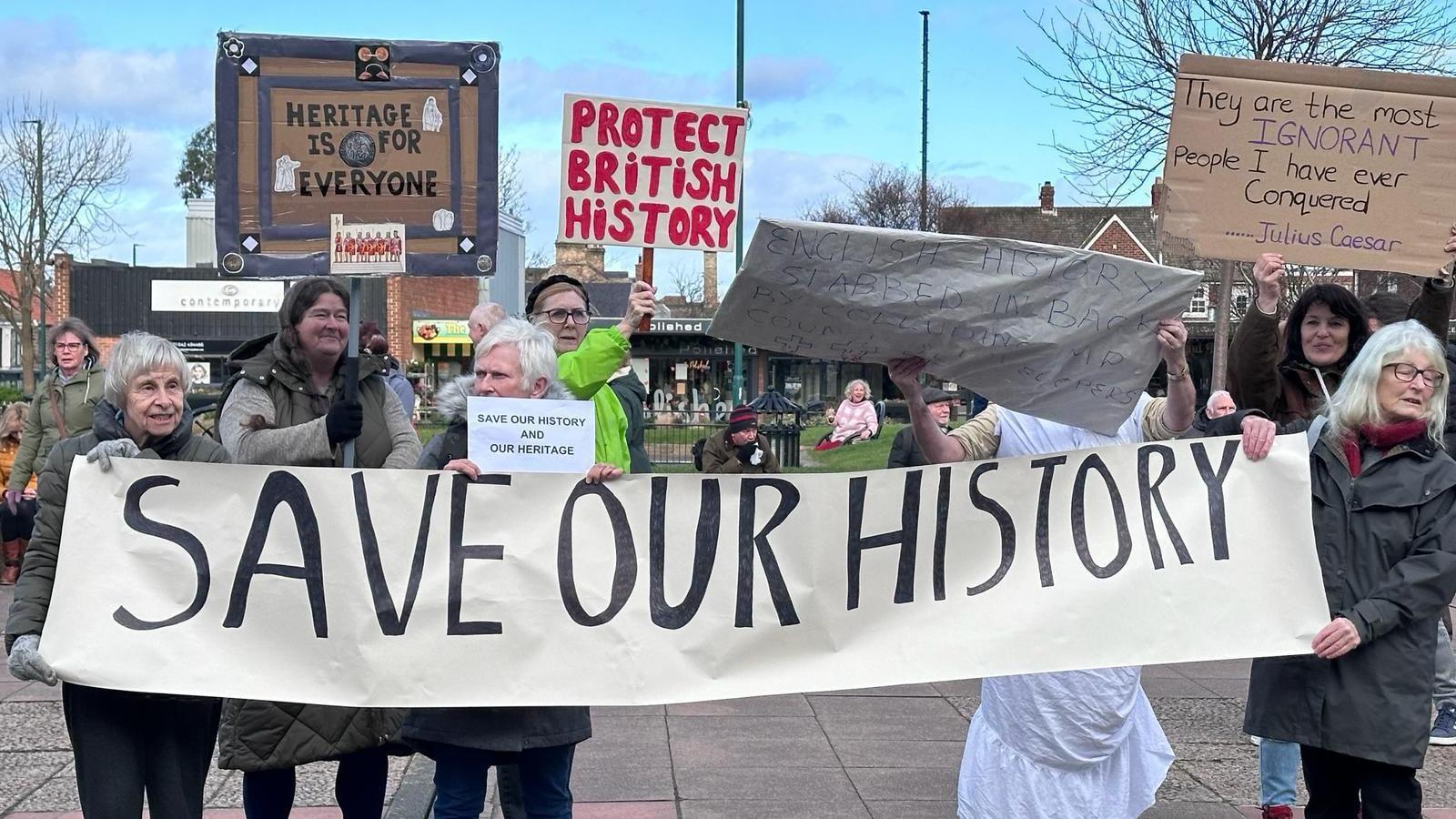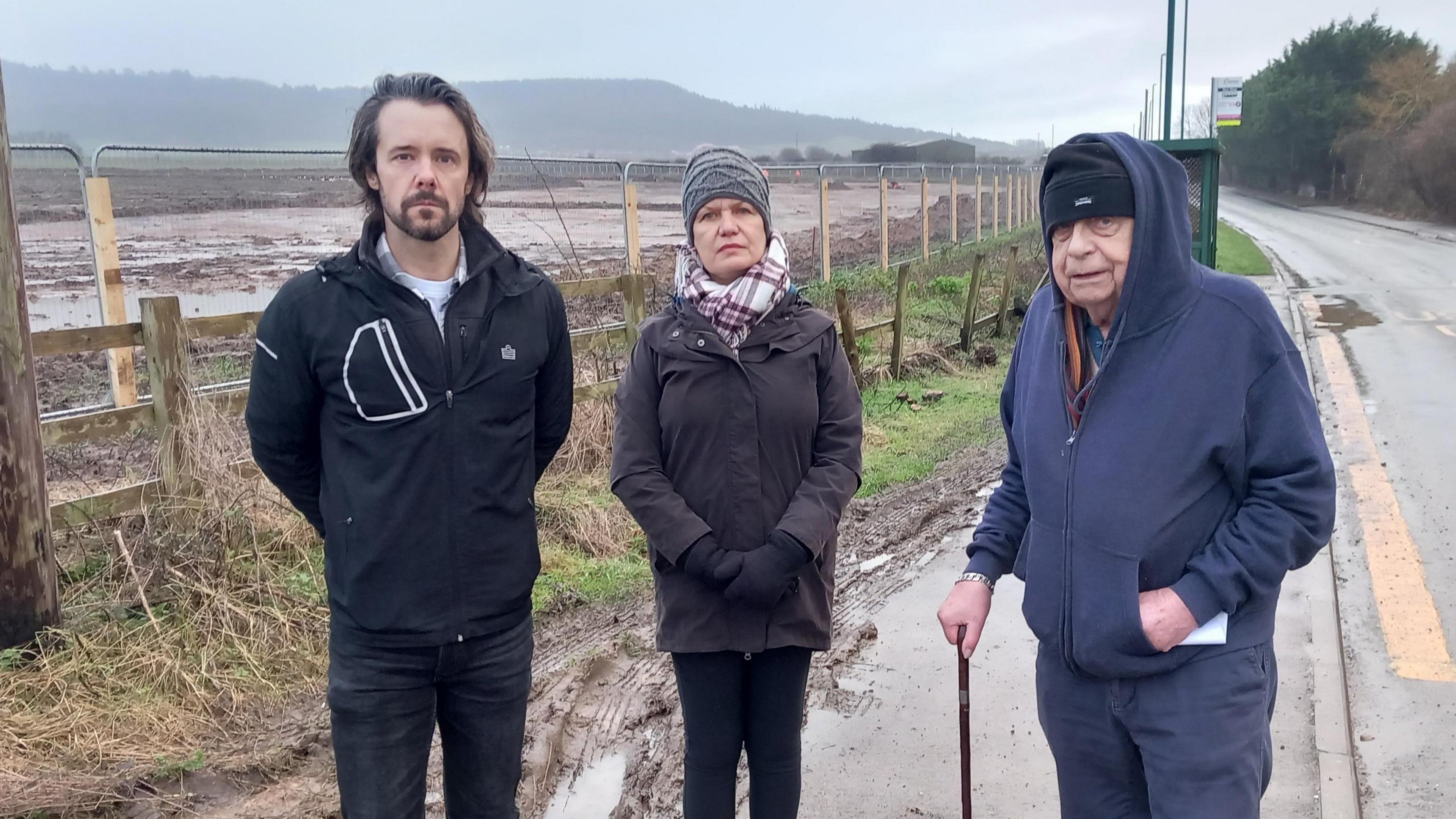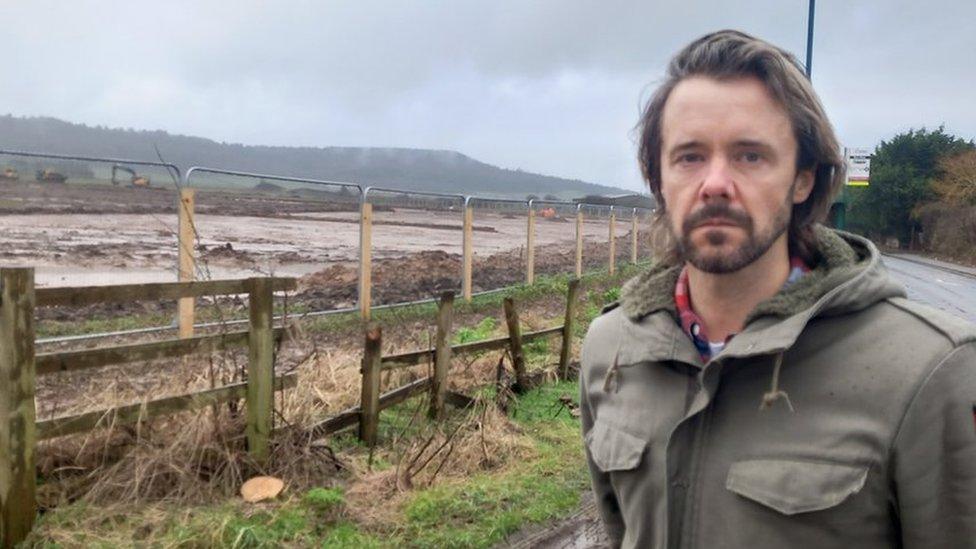Romano-British finds prompt Historic England bid

Protesters are calling for the development to be halted
- Published
Campaigners have applied to officially protect the site of a housing development where archaeological artefacts have been found.
Romano-British pottery, animal bones and flint tools have been unearthed at the site on the outskirts of Marske on Teesside.
Archaeologist Dr Kendra Quinn, who lives in Redcar, has applied to Historic England (HE) to formally schedule the site, saying it was too valuable to build on.
Developers Taylor Wimpey and Miller Homes declined to comment on the application.
The companies said archaeological consultants were continuing to investigate the site and all historic findings would be reviewed.
Work was being carried out in line with guidelines produced by the Chartered Institute for Archaeology and HE, a spokesperson said.
HE confirmed it was considering the application which, if successful, would add the land to a list of nationally important archaeological sites and mean consent would be required from the secretary of state for any work.

Dr Tristan Learoyd, left, archaeologist Dr Kendra Quinn, and Marske parish councillor Peter Finlinson, right, want further excavation at the site
Campaigners have called for the development to be halted until the site is fully excavated.
They claim there is evidence of a Roman "ladder" settlement, various iron age roundhouses and a bronze age burial mound, extending over 50 acres, the Local Democracy Reporting Service said.
Dr Quinn said: “I appreciate the requirement for homes for people, but this site is of great interest.
“It has continuous inhabitation over such a long period and is so extensive that I really feel we need to try to preserve it for people not just of the area, but for the wider nation, and also for future generations.
“Once it’s excavated and built over, it’s gone forever.”
The site has planning permission for 812 homes, a pub, petrol station and hotel.
A petition in favour of halting the scheme, which claims Saxon and Viking era finds have also been recorded at the site, has more than 2,960 signatures.
Follow BBC Tees on X (formerly Twitter), external, Facebook, external and Instagram, external. Send your story ideas to northeastandcumbria@bbc.co.uk.
- Published10 January 2024
